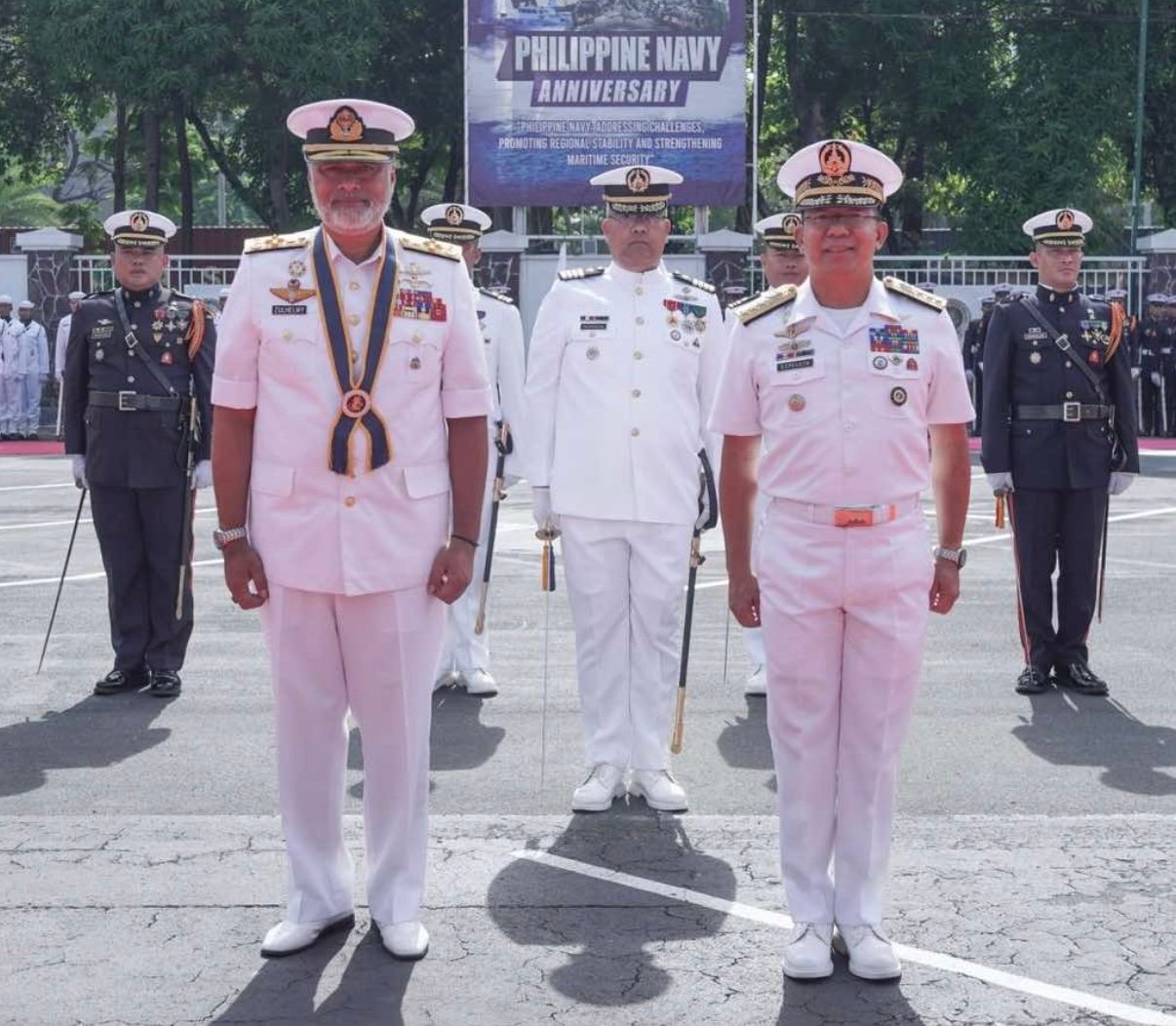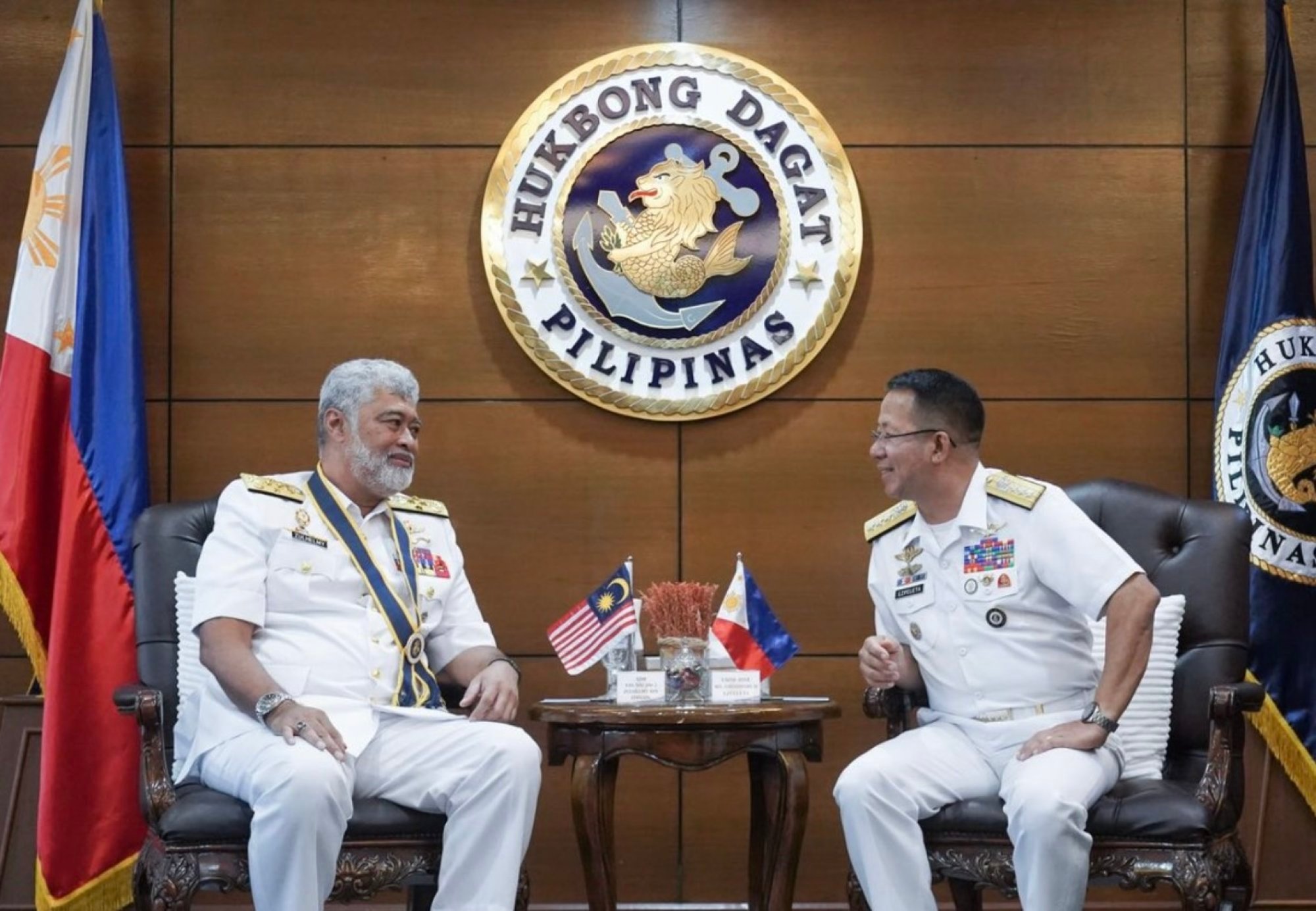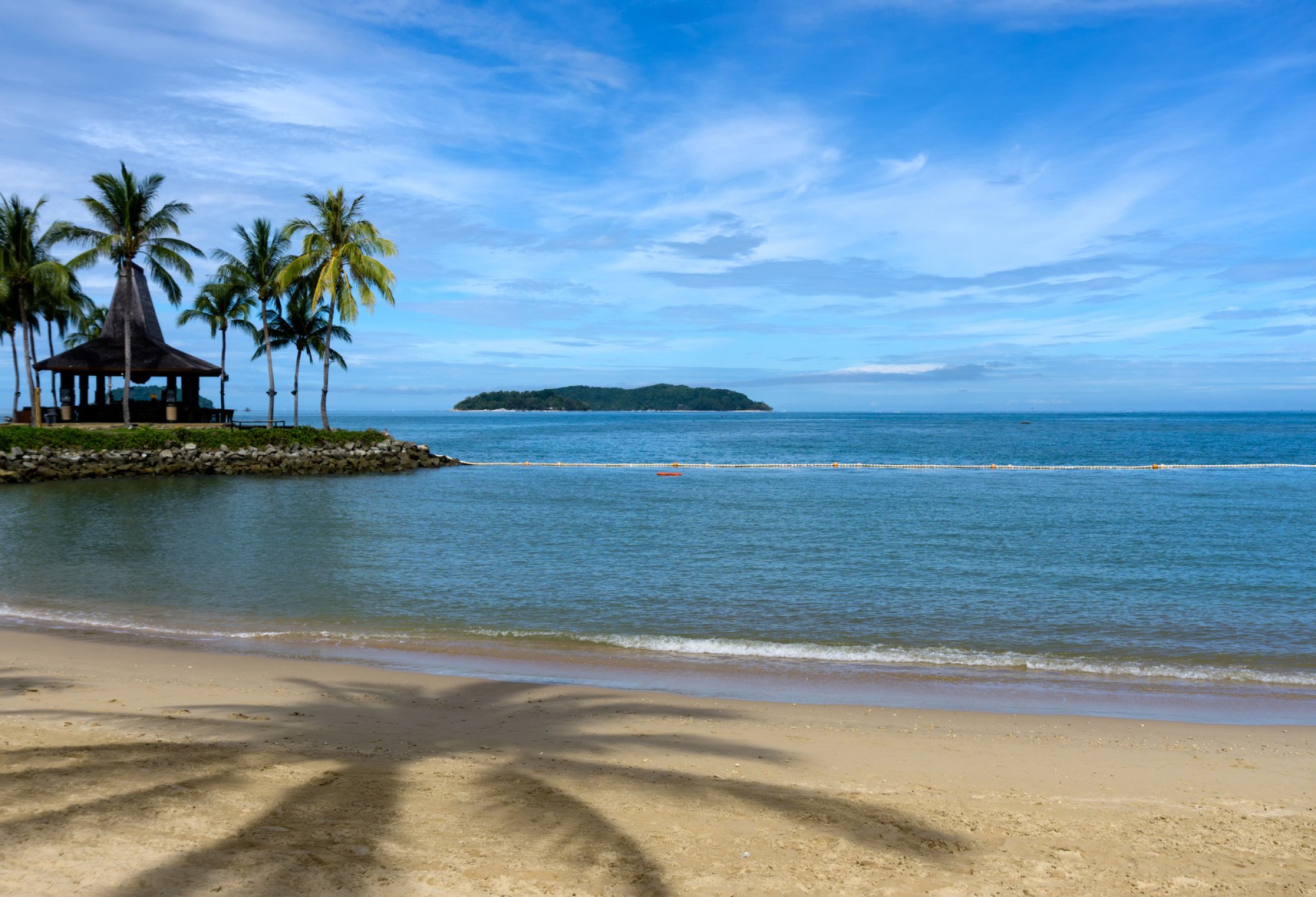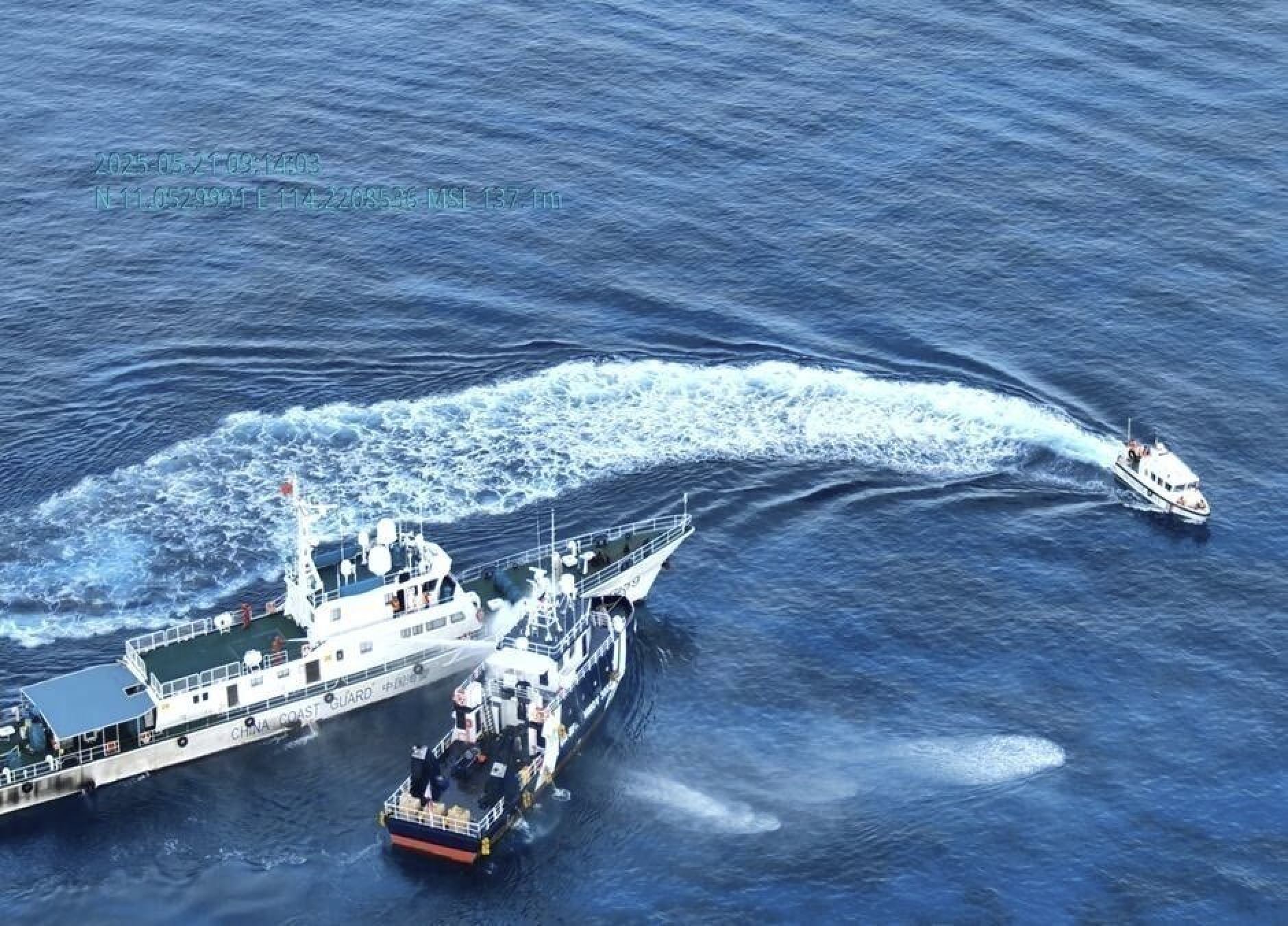Philippines and Malaysia navies renew close ties, sidestep maritime claims
Relations between the two countries have been tested over the Malaysian state of Sabah and Manila’s maritime laws

The heads of the Philippine and Malaysian navies have pledged to deepen maritime cooperation, reflecting growing trust between both sides and mutual concerns over regional security despite their overlapping claims in the South China Sea.
Admiral Tansri Zulhelmy Bin Ithnain, chief of Malaysia’s Royal Navy, met with vice-admiral Jose Ma Ambrosio Ezpeleta, flag officer in command of the Philippine Navy, during a courtesy call in Manila on Wednesday. He also held talks with the Philippine military chief, General Romeo Brawner Jnr.
The visit “reaffirmed the strong and enduring ties” between the two countries’ naval forces, according to a Philippine Navy’s statement, which said both sides had exchanged views on joint maritime operations, regional security and naval modernisation.
The navies committed to enhance maritime cooperation and discussed future training and capability development efforts. They also highlighted the coming 19th Asean meeting of navy chiefs – to be hosted by Malaysia in August – as a key platform to advance collaboration.
“This engagement underscores the Philippine Navy’s continued commitment to building strong defence partnerships, advancing regional cooperation, and promoting maritime security in the Indo-Pacific region,” the statement said.
The renewed push for naval collaboration comes as both countries face overlapping maritime claims in parts of the South China Sea, even as China’s growing assertiveness in the disputed waterways has fuelled regional unease.

‘Welcome development’
The proposed cooperation between Malaysia and the Philippines is timely, especially given the two neighbours’ historical disputes, including conflicting maritime claims and an unresolved row over the Malaysian state of Sabah, according to political analysts.
Given the importance of intra-Asean cooperation, the naval partnership between the two countries was “definitely a welcome development”, said Julio Amador, the interim president of the Foundation for the National Interest and founder and trustee of the non-profit policy advisory firm FACTS Asia.
“For one, it allows both sides to show that despite their differing claims, they can work together even on military matters. This can be an example of how good faith is exercised,” Amador said.
It was important for Malaysia and the Philippines to show that “intra-Asean disputes could be managed without the use of force or violence” amid ongoing border tensions between Cambodia and Thailand, he added.
“There are ways to resolve the territorial disputes between countries and it’s important for Asean to highlight that within the regional association, matters can be managed peacefully,” he said.
Malaysia and the Philippines have clashed over maritime legislation and the Sabah dispute for years.
In November, Malaysia protested two new Philippine maritime laws that it said encroached on its territory in the South China Sea.

The Philippines enacted in that month the Philippine Maritime Zones Act and Archipelagic Sea Lanes Act, which it said was intended to outline its maritime claims in accordance with the United Nations Convention on the Law of the Sea, or Unclos.
However, Malaysia said the laws extended into its boundaries mapped out in 1979, which it said were internationally recognised, including Sabah. The Malaysian state has been at the centre of a long-standing bilateral row with both countries taking their dispute to the United Nations in 2020, which remains unresolved.
In 2023, a French court ruled against Malaysia and awarded US$15 billion to eight Filipinos, who claimed to be heirs of the former sultanate of Sulu in southern Philippines – parts of the sultanate included areas in Sabah.
Malaysia and the Philippines are also embroiled in a dispute over the South China Sea, with their overlapping claims at odds with Beijing, which claims nearly the entire waterway through the nine-dash line.
Maritime tensions between China and the Philippines escalated last year, leading to clashes including Chinese ships sideswiping Philippine boats on several occasions and personnel from both sides being involved in skirmishes.
“It is better for issues within Asean and the Southeast Asian region to be resolved through negotiations and dialogue among the countries themselves,” Malaysia’s Foreign Minister Mohamad Hasan told reporters at the Asean meeting of foreign ministers in July last year, with his statements widely believed to be referring to the Philippines and its alliance with the United States.
“If any Asean member or country attempts to bring in external influence to solve its problems, it will lead to uncertainty in the Southeast Asian region,” he added.
Although the agreement between Malaysia and the Philippines was in its initial stage, it “shows there is a common security agenda in the South China Sea”, Sherwin Ona, an international fellow at the Institute for National Defense and Security Research in Taiwan, told This Week in Asia.

Maritime code of conduct?
The reactions of analysts are mixed on whether Malaysia and the Philippines could follow up by fast-tracking the much delayed code of conduct (CoC) for the South China Sea, with the Manila taking over Asean chairmanship next year from Kuala Lumpur.
Asean and China had agreed to complete a code of conduct by 2026, Enrique Manalo, the Philippines’ foreign secretary, said in April.
Amador said, however, there were lingering issues between the different countries, which hinder the finalisation of the CoC. “The most that they can do by next year is issue a document and call it a CoC,” he added.
Asean countries could proceed with creating a CoC applicable to the bloc, Amador said. It was “high time that claimant states within Asean take the lead in crafting a code of conduct that works for them” as this could spur China and other countries to sign on it, he added.
Given that Asean had discussed the issue for a long time, a working CoC could be feasible by 2026, according to Ona. Cooperation between Malaysia and the Philippines on the CoC would illustrate that “the rule of law is operational in Asean” and sway other claimant states to sign on.
Amador said rather than focus on a deadline, the substance of the CoC was more important to ensure that it “fully accords with international law, especially Unclos, and that it does not undermine the rights or interests of states”.